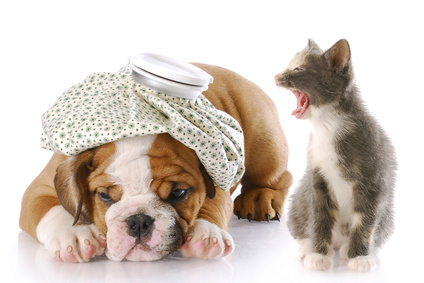
We all know somebody who suffers from migraine. We hear stories of hours in a dark room with flashing lights, horrific pain and vomiting. Those of you who have migraine attacks know all too well how disabling they can be. My patients tell me that the tablets available to alleviate an attack are, all too often limited or not effective at all.
What is migraine? It is a very particular type of headache, typically affecting one side of the head or eye. The word migraine originates from the Latin hemikrania, literally meaning “half skull”. Classical migraine is preceded by an “aura” often involving visual disturbances and altered sensations. This is due to the blood vessels within the brain constricting. Dilation of blood vessels in the brain that follows causes the intense pain. Sometimes the digestive system is involved producing nausea, and/or vomiting and photophobia (light sensitivity). Migraine attacks can last for hours and, on rare occasions, days. Not everybody who suffers from migraine gets all the symptoms and some people are affected more severely than others.
So, what causes migraine? Well, that is unclear. What is clear is that a number of factors seem to be involved. Diet can play an important part; cheese, chocolate, coffee and certain types of alcohol are typical culprits. Allergy testing may help identify problematic foods. Constipation, stress and overwork also play a part too. Interestingly, the majority of women who suffer from migraine do so during menstruation or ovulation, indicating that hormones play a significant role.
How can Herbal Medicine help with migraines? The most effective way is to treat the person under consultation and address the causes in their specific, individual case. The main aim is to prevent the migraine from occurring in the first place. Often supporting the liver in its role as detoxifier of the body can have brilliant results. This helps to underpin the theory that migraine attacks can result from toxic overload. What’s more, the liver is strongly involved in hormone clearance so this approach is often useful for those who have hormone related migraines. A qualified Medical Herbalist may use liver supporting and relaxing nerve tonic herbs such as Verbena officinalis (vervain), Lavandula officinalis (lavender) and Stachys betonica (wood betony). If hormones are involved then maybe Vitex Agnus castus (chasteberry), Cimicifuga racemosa (black cohosh) amongst many others may be considered.
There are a number of remedies available “over the counter” which have a reputation for helping prevent and treat migraine. The most well-known is Tanacetum parthenium (feverfew) which helps by controlling constriction and dilation of blood vessels. Gingko biloba (maidenhair tree) also has a positive effect on the blood vessels, particularly those in the brain.
For advice on herbal medicine, both “over the counter” and under consultation please contact a fully qualified Medical Herbalist. Please seek advice before taking any herbal medication, particularly if you are pregnant, breastfeeding, very young or the elderly.
Lynda Jones BSc (Hons) Medical Herbalist
[…] More Migraine Symptoms Articles An Effective Migraine Diet Plan Article by Kevin Thoroughgood The throbbing and pulsating pains cau…one of the major causes is our diet. .It is widely regarded that what we eat and drink is a major […]